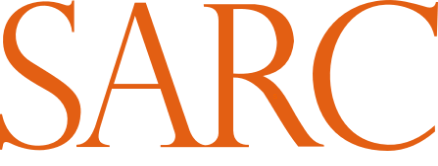The world’s largest democracy, India is on the road to gaining economic muscle power. A federal republic with 29 states and 7 union territories, India is a fast growing diverse economy. According to the updated figures released by the World Bank for the year 2017, India is the sixth largest economy of the world. This is a milestone for the Indian economy more so because it has successfully surpassed France, which now holds the seventh position. The US is the world’s highest ranked economy followed by China, Japan, Germany and UK.
About a decade ago the GDP of India was half of the GDP of France. However, the size of the Indian economy has nearly doubled since then and is expected to power ahead as a key economic engine. The Gross Domestic Product of India increased by an average of 6.2%, that is an increase of 116.3% from 1.201 trillion dollars in 2007 to 2.597 trillion dollars in 2017. On the other hand, the Gross Domestic Product of France has reduced by 0.01% that is from 2.657 trillion dollars in 2007 to 2.583 trillion dollars in 2017. According to the International Monetary Fund, India is projected to generate a growth of 7.4 % this year and 7.8% in 2019, boosted by household spending and a tax reform.
India ranks 123rd in terms of its per capita income at Purchasing Power Parity, amounting to 7060 dollars, while France is ranked 25th with per capita income of 43,720 dollars. The Purchasing Power Parity is the true value of a country’s currency vis-à-vis the dollar. It depicts the true picture of the relative performance of different countries. India has a much lower Purchasing Power Parity as compared to France owing to the difference in the size of its population. The population of India stands at 1.34 billion while that of France is 67 million. This shows that India should have grown at a much faster pace and at a greater scale to level some of the inequality in the levels of per capita income.
The Indian economy had a strong rebound after slow down as a result of demonetization. The rural and informal sectors of the economy suffered disproportionately because of the cash crunch as a majority of their work is based on liquid cash. Even today nearly 80% of our population is dependent on the informal sector. Shortage of cash led to meant severe losses in their employment and earnings. However, the economy started to revive and has had a strong rebound since July 2017 but also suffered a huge loss of 1.5% of its GDP growth rate. The manufacturing sector which contributed 17.4% to GDP in the year 2012 increased its share to 18.1% in the year 2018. Significant improvements have also been observed in the service sector whose contribution to GDP increased from 18.9% in the year 2012 to 21.7% in 2018.
Union Minister Arun Jaitley said that if firm growth continues, India will soon reach the fifth position in world rankings. The announcement also proved good for the markets as benchmark indexes Sensex and the Nifty jumped 0.8 percent and 0.7 percent respectively, while the rupee surged by 20 paise to end at a one-week high of 68.57 per dollar.
India might have surpassed France in terms of its GDP rankings but is way behind it in terms of its per capita income. There is still a long way to go before it establishes itself as a global superpower. Even as it is gaining economic power, India has to utilize its full potential to strengthen its weaker sectors.




